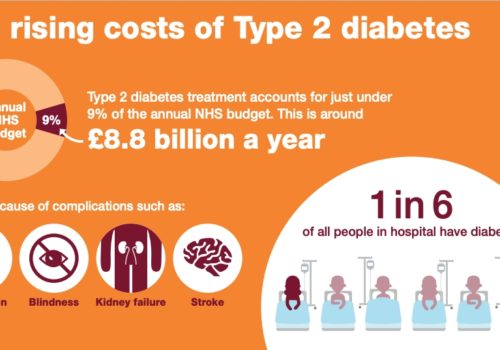

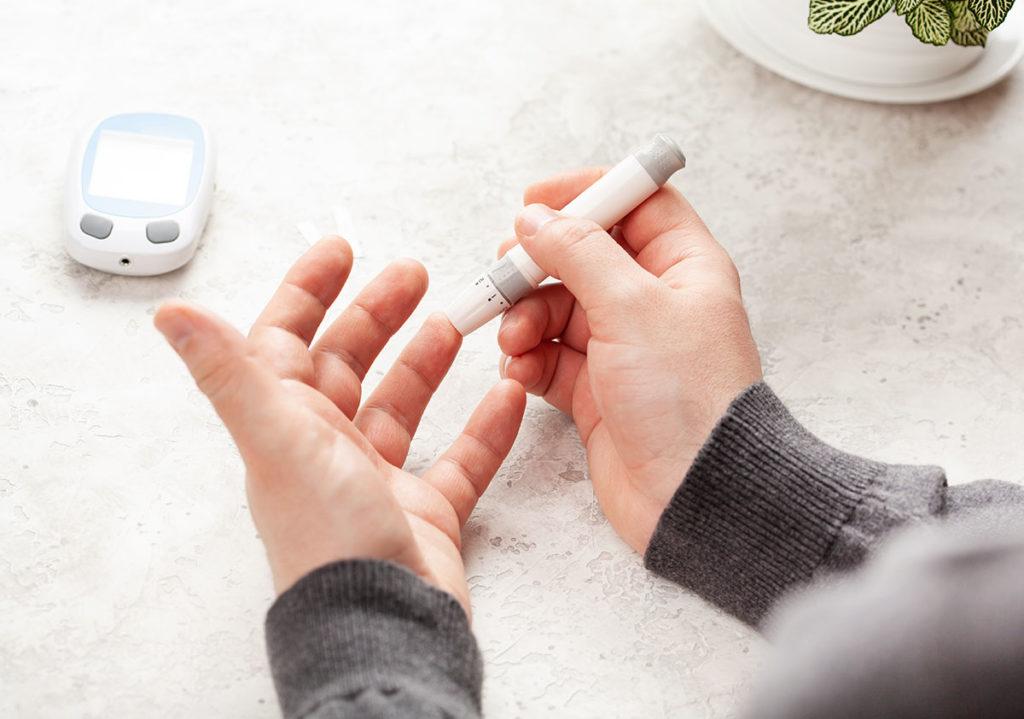
This resource is fully searchable using the search box at the top of the page, or to narrow down your selection using filters click on 'Knowledge hub' in the main navigation.

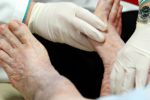
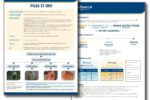

More than 4.9 million people in the UK have diagnosed diabetes and by 2030 Diabetes UK estimate there will be 5.5 million people with diabetes.
The care of patients with diabetes – particularly type 2 diabetes which counts for about 90% of patients seen in primary care – is a significant challenge.
Our resources focus on:
![]() Detection of pre-diabetes conditions frequently associated with obesity and metabolic disorders
Detection of pre-diabetes conditions frequently associated with obesity and metabolic disorders
![]() Early diagnosis of type 2 diabetes
Early diagnosis of type 2 diabetes
![]() Interventions to reduce the risks of cardiovascular and renal disease (the cardio-renal syndrome)
Interventions to reduce the risks of cardiovascular and renal disease (the cardio-renal syndrome)
![]() Glycaemic control with established therapies including metformin
Glycaemic control with established therapies including metformin
![]() The roles for newer agents including SGLT2 inhibitors and DDP-4 inhibitors
The roles for newer agents including SGLT2 inhibitors and DDP-4 inhibitors
![]() Importance of lipid (cholesterol) management and antihypertensive therapy
Importance of lipid (cholesterol) management and antihypertensive therapy
Additional contributions discuss:

![]() The initiation and intensification of insulin in people with type 2 diabetes
The initiation and intensification of insulin in people with type 2 diabetes
![]() Diagnosis and management of people with type 1 diabetes
Diagnosis and management of people with type 1 diabetes
![]() Prevention of hypoglycaemia
Prevention of hypoglycaemia

Obesity is estimated to be responsible for more than 30,000 deaths each year, reducing lifespan by an average of nine years. The links between obesity, diabetes and cardiovascular disease are well documented, but overweight and obesity also causes 6% of cancers in the UK. These figures have resulted in warnings that obesity is the new smoking when it comes to risks to health and longevity. So the problem is clear. The challenge is to put into action what works.

This case study describes the diagnosis and management of 55-year old man with painful diabetic peripheral neuropathy. He is already receiving treatment for his diabetes but is experiencing burning pain in the soles of his feet, especially at night when lying in bed. He has paresthesia and numbness in toes and his sleep is interrupted because of his condition. He also presents with depression and has a number of diabetic complications and co-morbidities.

We all know that diabetes prevalence is increasing. It is estimated that by 2025, 5 million people will have Type 2 diabetes in the UK (Diabetes UK). That potentially means more pressure on an already creaking healthcare system and more people at risk of developing debilitating complications from their diabetes. It doesn’t have to be that way!
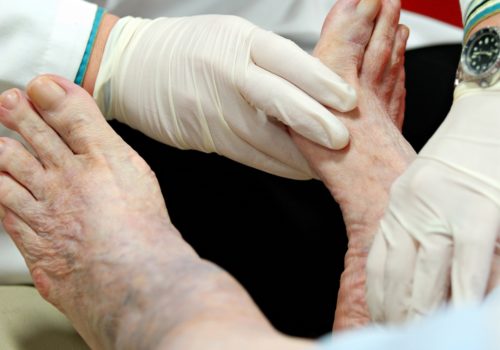
The annual diabetic foot check plays a vital part in the support and education of people with diabetes. This can be performed easily and with minimal expense, but despite the NICE recommendation (NG19) that everyone with diabetes should have a foot check at least once a year, Diabetes UK reports that up to 400,000 people are not having this performed.

The time of year is one of a number of factors shown to affect HbA1c levels. This study investigated seasonal variations in HbA1c in a large population of people with diabetes in Scotland. These variations appear to have clinical significance in terms of making medication decisions and other aspects of clinical care.

Professor Mike Kirby highlights the key updates in the new NICE guidelines on the management of type 2 diabetes in adults and how these impact your practice. The updated guideline focuses on an individualised approach to patient care with recommendations on patient education, dietary advice, managing cardiovascular risk, managing blood glucose levels, and identifying and managing long-term complications.
A unique new e-platform for primary care

For healthcare professionals in countries with applicable health authority product registrations. The content may not be approved for use in your specific region or country. Please review the applicable product labelling for your country for indications and instructions prior to use. If not approved, please exit this site.
We use cookies to ensure that we give you the best experience on our website.
By continuing to this site you are confirming that you are a healthcare professional and are opting into the use of cookies.


















